World Vision and WFP empower and equip women with skills to fight hunger in South Sudan
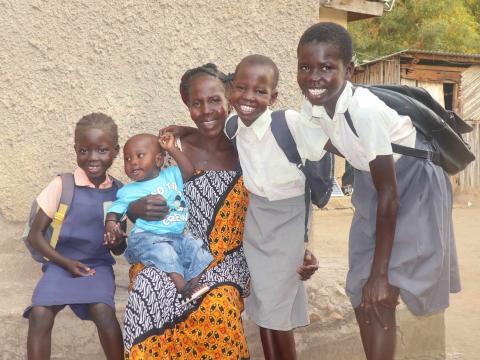
“Women in South Sudan are born, and often married, into poverty. But these should not be an excuse for us to grab any opportunity to change our life”, shares Elizabeth, 30, and mother of four.
Elizabeth is among the 50 people who graduated from World Vision’s cash for training project in 2018. She learned skills on tailoring and was provided a sewing machine. “I already had three children then, and we survived on small business. My husband earns meager income as a soldier,” Elizabeth adds.
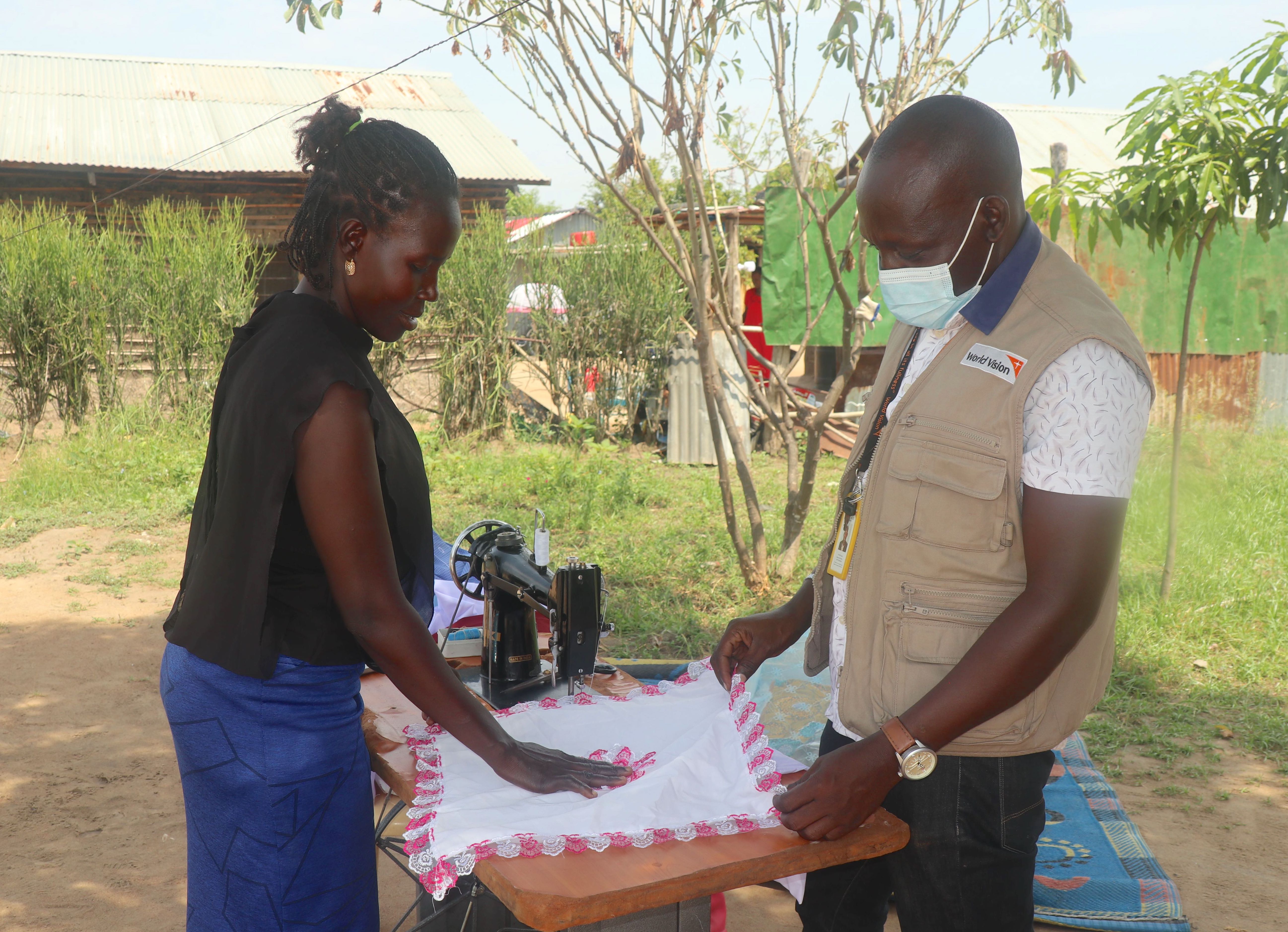
Elizabeth said she inherited her courage from her mother who singlehandedly brought them up after their father died. She says, “I stopped in primary seven for lack of money, and I promised myself never to let my children face the same situation.”
For additional income, she sold cookies and homemade peanut butter in the public market. She tried to get into the sewing class from another organisation’s project but was not successful. “I was determined to fight poverty so I did anything to change our situation. It began when I received my sewing machine on 2018.”
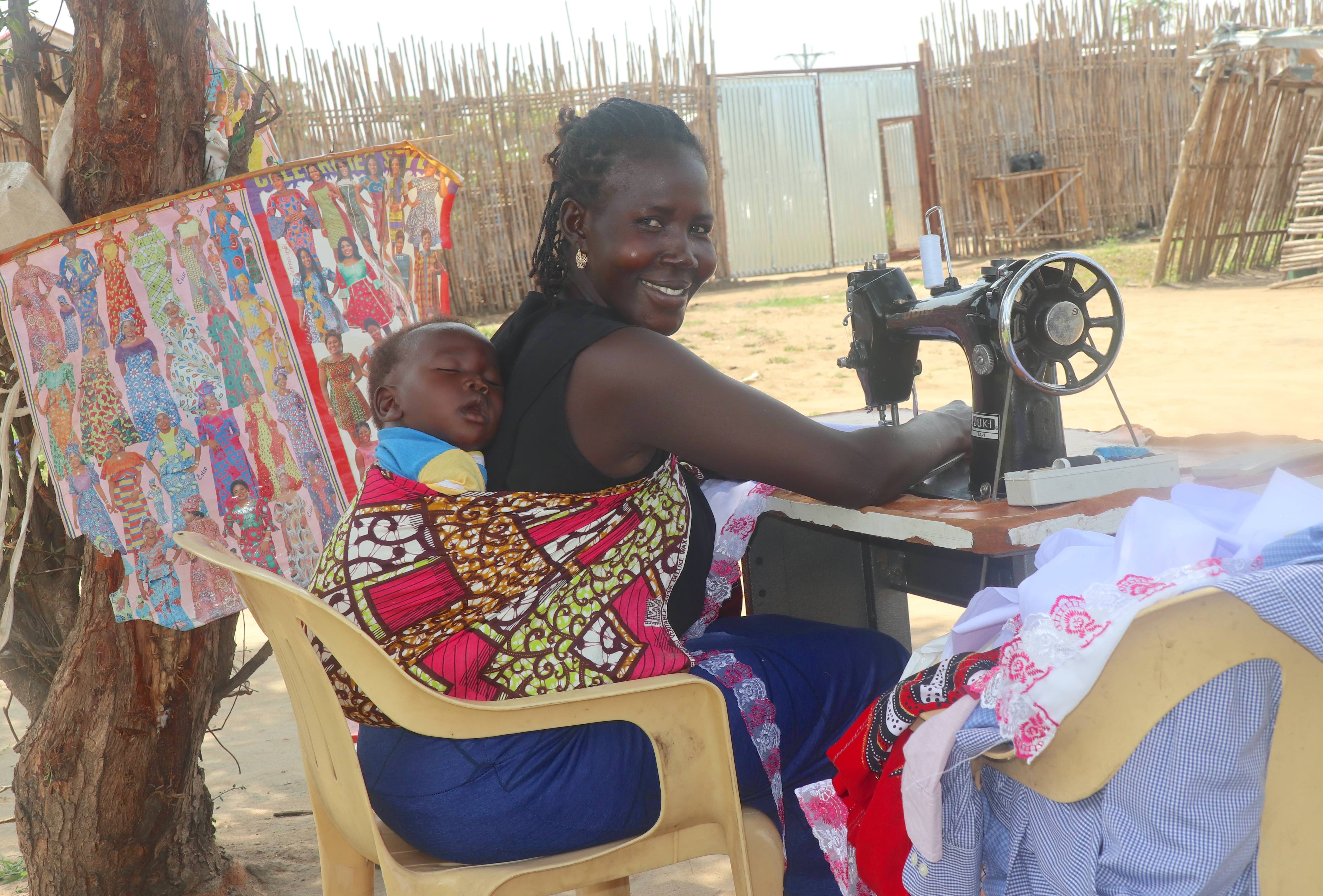
Her first two years of work paid back her borrowed money. “I cleared all my debts from people and fixed a few things in the house in the first two years of my sewing venture. I go to the market at 7:00 in the morning and worked very hard,” she shares.
“Now that my children are well-provided, they are performing well in school. I spend SSP150,000 (USD414) on school fees alone. But I want to give my children the best education and a good future. Even with all the family’s needs, I am still able to save SSP 40,000 (USD 110) in the past few months,” she happily adds.
Our actions should include approaches that allow the community to choose what they want to do and guide to elevate them from being beneficiaries to partners in development empowered to build their own future.
Elizabeth’s eldest daughter Judith, 12, says, “I am excited to study because my mother provides for all our school needs. I want to work hard like her and become a doctor to help people someday. World Vision and the World Food Programme (WFP) not only support our family but the whole community because she sews uniforms for children to go to school."
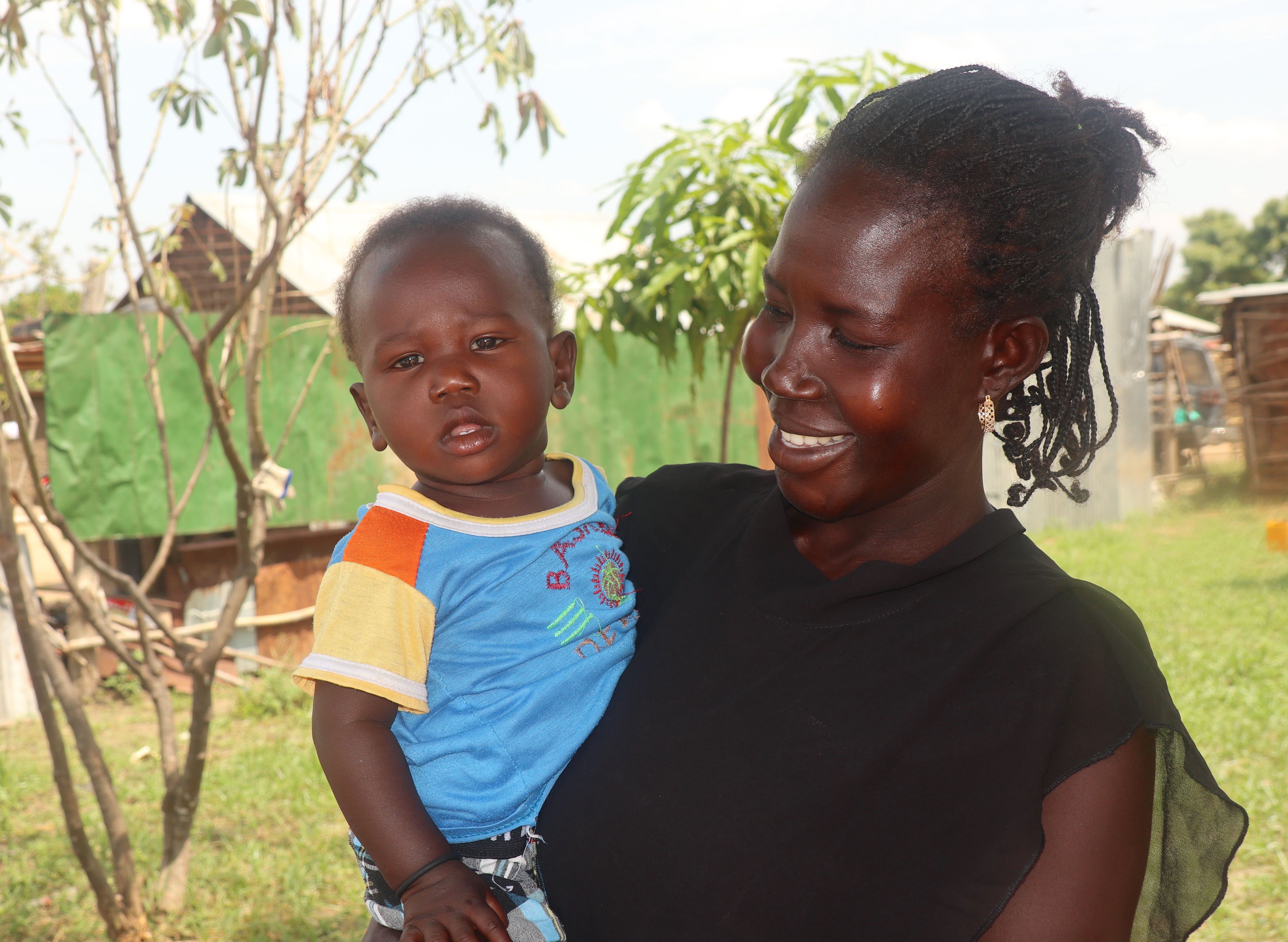
Growing up, Elizabeth lacked many things but she changed things for her children. “God blessed me through World Vision and WFP. I am forever grateful. I was in the market but moved home ever since I gave birth to my son Adam. People still bring their clothes and school uniforms for me to sew because of the good work I did for them.”
Elizabeth is now a proud mother and an entrepreneur. “I am proud of the person I have become. Initiatives like this that benefit the women of South Sudan need to be supported to better the lives of families, which eventually lead to nation building,” she says.
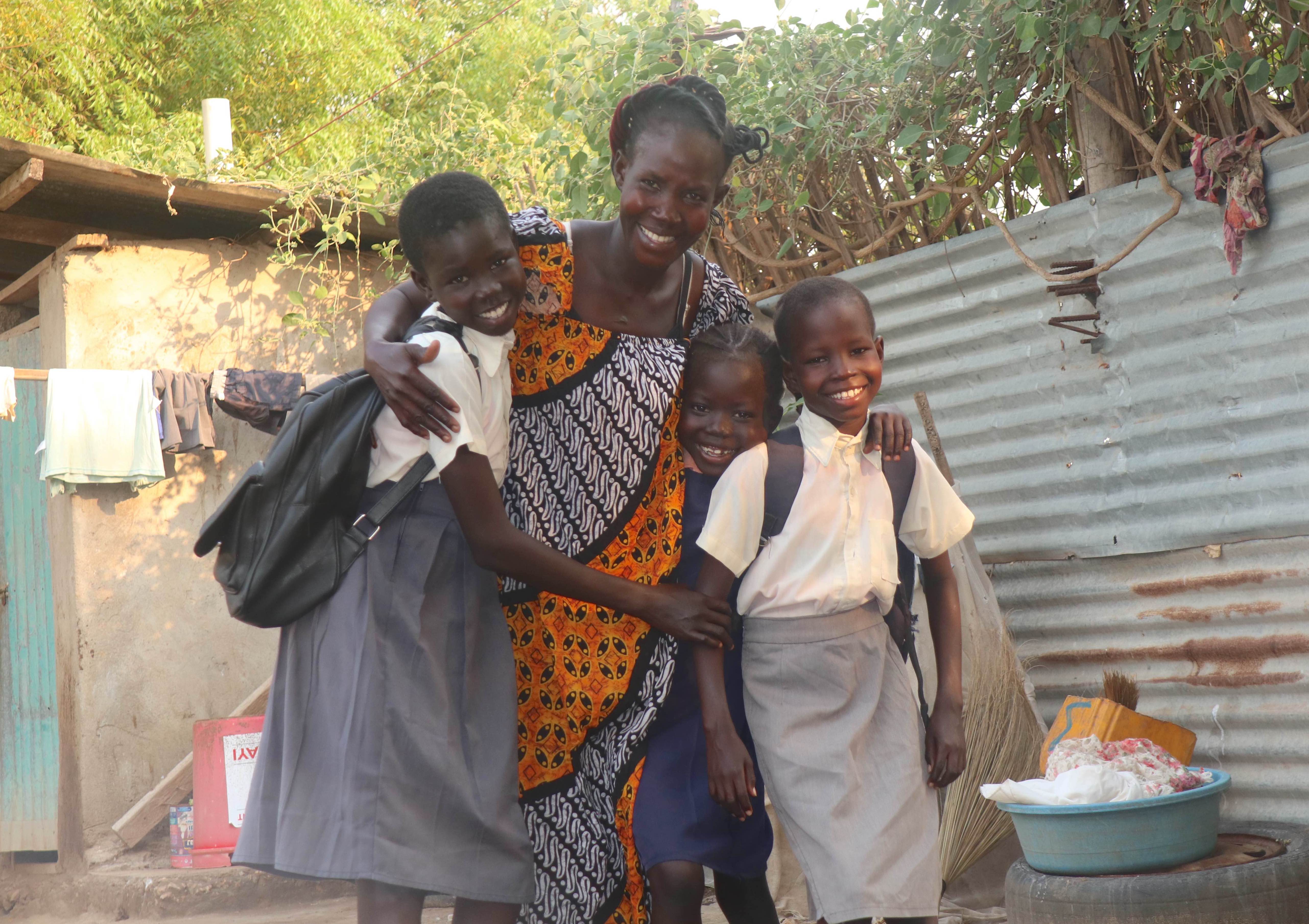
Emmanuel Ondoga Cash for training Project Coordinator shares, “Investing in women’s economic empowerment and skills development is one of the most urgent and effective means to drive progress on gender equality, poverty eradication, and inclusive economic growth." For women, Ondoga believed, this income is significant in helping provide for their children basic needs and services.
“Building resilience in fragile context is possible. We must incorporate interventions that restore dignity and renew the hopes of people. Our actions should include approaches that allow the community to choose what they want to do and guide to elevate them from being beneficiaries to partners in development empowered to build their own future,” Ondoga concludes.
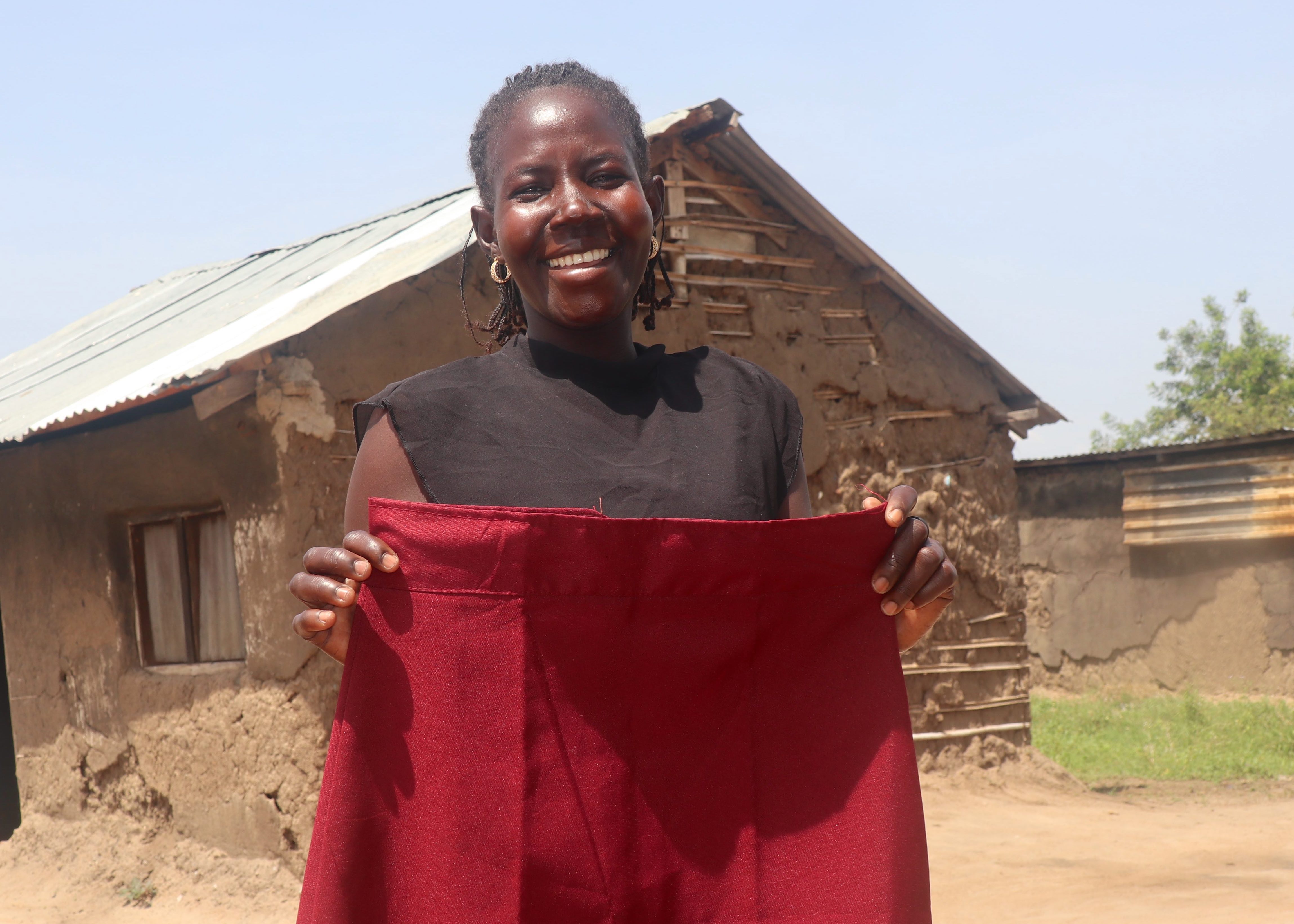
Story and photos by Scovia Faida Charles Duku, Communications Coordinator